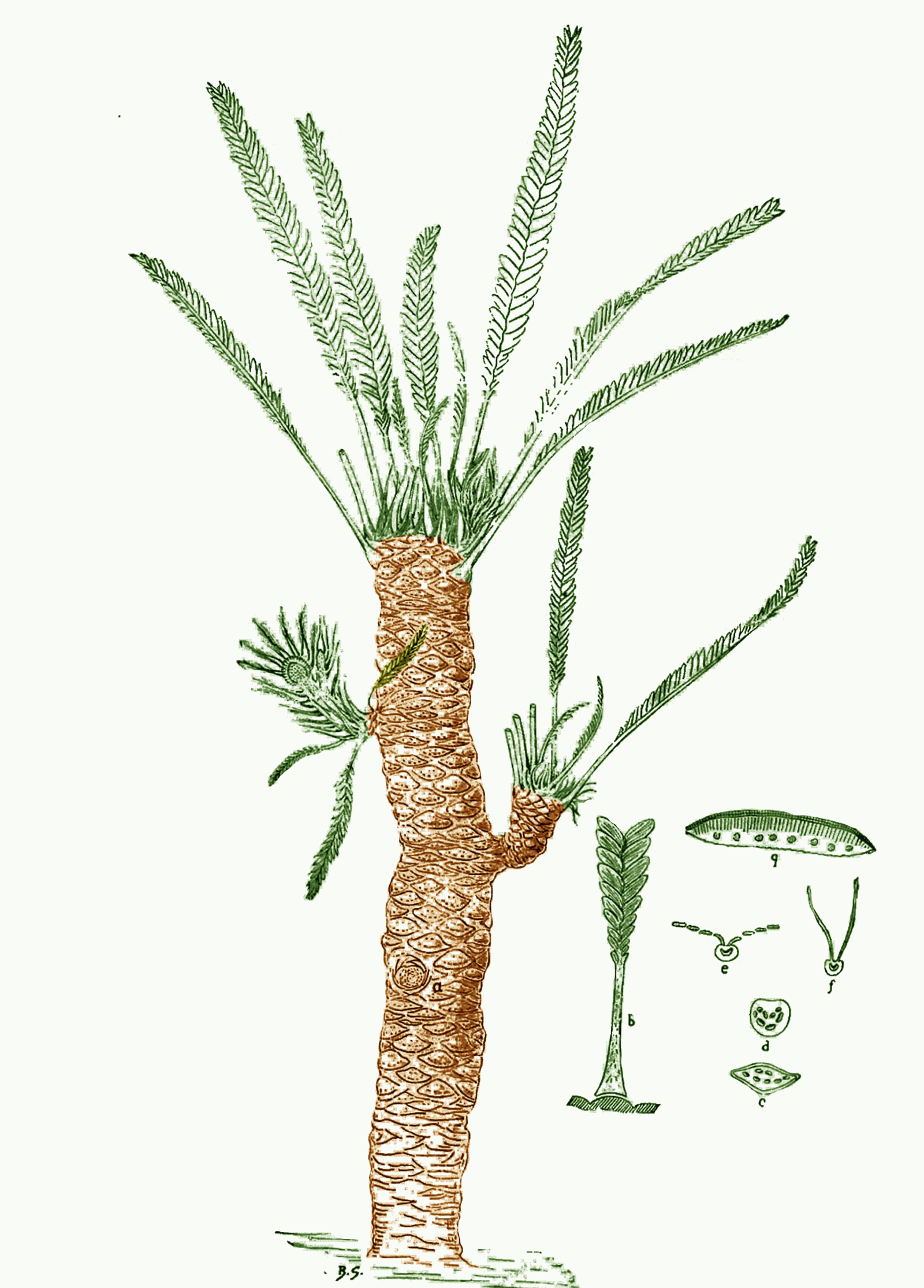4A Lab Seminar
Amelia Bonea: Fossil Histories: Palaeobotany and the Making of a Scientific Discipline in Twentieth-Century India

Birbal Sahni’s reconstruction of Williamsonia sewardiana, found in the Rajmahal Hills, India. Image modified from the original illustration, published in the Memoirs of the Geological Survey of India, vol. XX, no. 3 "Palaeontologia Indica" (Calcutta, 1932). Photo courtesy of Prof. Ashok Sahni.
The post-WWII period witnessed new developments in the institutionalization and professionalization of palaeobotany, a highly interdisciplinary science of the past that investigates plant fossils across a wide geological timescale. Among these were a growing recognition of palaeobotany as a field of study, an increase in the number of palaeobotanists and palaeobotanical laboratories as well as the establishment of separate professional associations and scientific journals that aimed to mark off this discipline from its cognates botany and geology. In 1946, India became one of the two countries in the world, along with the United States, to establish an institution of education dedicated entirely to palaeobotany. Named after its founder, a Cambridge-educated scientist of international repute, the Birbal Sahni Institute of Palaeobotany in Lucknow has since morphed into an autonomous institution of research in palaeosciences supported by the Government of India. The talk ponders the reasons for this unique development against the political and socio-economic background of post-independence India, reconstructing the international scientific networks that underpinned the establishment of the institute as well as the research on the history of plant life conducted there. The discussion will also highlight the role of women in Earth Sciences and the institutionalization of science in post-colonial India more generally.
Amelia Bonea is a historian of South Asia and the British Empire, with a particular interest in media, science, technology and medicine. Her first monograph, The News of Empire: Telegraphy, Journalism, and the Politics of Reporting in Colonial India, c. 1830-1900 (Oxford University Press, 2016), was awarded the 2017 Eugenia M. Palmegiano Prize for the History of Journalism by the American Historical Association. She is currently a Research Fellow at the University of Heidelberg, where she leads the project "Archives of the Earth: Fossils, Science and Historical Imaginaries in Twentieth-Century India," funded by the German Research Foundation.
17 maggio 2021, ore 16:00
The event takes place online.
A registration to the Online Seminar can be made via 4a_lab@khi.fi.it
Avviso
Questo evento viene documentato fotograficamente e/o attraverso riprese video. Qualora non dovesse essere d’accordo con l’utilizzo di immagini in cui potrebbe essere riconoscibile, da parte del Kunsthistorisches Institut in Florenz a scopo di documentazione degli eventi e di pubbliche relazioni (p.e. social media) la preghiamo gentilmente di comunicarcelo.


